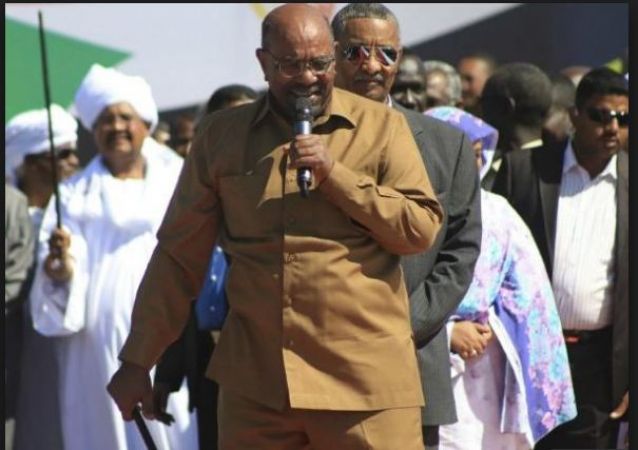
Khartoum: Sudanese protester Osman Sulaiman has taken to the streets of Khartoum chanting "overthrow, overthrow" almost daily since demonstrations erupted against President Omar al-Bashir's iron-fisted rule in December. And he insists he has no intention of stopping now.
Sulaiman, an engineering graduate who has been unemployed for years, told that "We have to fight our battle if we have to secure our future and the future of our country,". As the protest campaign against Bashir's regime enters its third month on Tuesday, demonstrators are pressing on with rallies despite a show of defiance from the veteran leader and a sweeping crackdown by the authorities. Officials say 31 people have died in protest-related violence so far, while Human Rights Watch says at least 51 have been killed including medics and children.
also read Venezuela's government will stage a concert on the Colombian border
It is to b enoted that hundreds of protesters, opposition leaders, activists and journalists have been jailed by agents of the feared National Intelligence and Security Service (NISS). Murithi Mutiga of International Crisis Group (ICG) said "The protesters' resilience has been very impressive,". Further added that, “Two months have passed, but the movement's momentum has remained and participation has grown geographically and across socio-economic classes."
also read Mass rallies planned in Paris and other French cities to denounce a flare-up of anti-Semitic acts
On Sunday, scores of protesters rallied in Khartoum chanting their catchcry "freedom, peace, justice" as police fired tear gas. Demonstrations first erupted on December 19 in the farming town of Atbara against a government decision to triple the price of bread.”. But the rallies swiftly mushroomed into a major challenge to Bashir's three-decade rule, with those taking part demanding his resignation. From the provinces to the streets of the capital and its twin city Omdurman the demonstrations have spread through villages, towns and cities across the east African nation.
They have drawn in a cross section of society including middle-class professionals, agricultural labourers, youths and Bashir's political opponents -- with thousands of women and men rallying across the country on some days. Only the three conflict zones of Darfur, Blue Nile and South Kordofan have remained largely devoid of mass demonstrations.